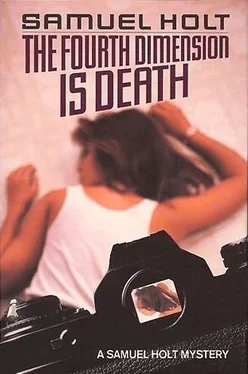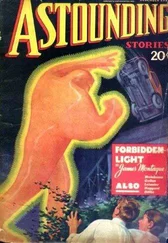Mort said, “Beg pardon?”
I raised an eyebrow at the detectives. “Care to explain?”
“Oh, I don’t think so,” Feeney said, with his sour smile. “That’s just one of Marie’s little jokes.”
The idea of Marie LaMarca being a person with a battery of little jokes was impossible to think about. These two had their own variant on good cop/bad cop: they were nasty in completely different ways. While Feeney was slyly comical and malicious, LaMarca was cold and rigid and utterly without humor.
It was LaMarca who now said, “Have you had time to think about who might have been trying to blame you for Miss Peyser’s murder?”
I said, “So you know she didn’t write that name herself, eh?”
Chuckling, Feeney said, “Oh, it was Kim Peyser’s finger that wrote it, all right. Blood under the nail, fingerprint fragments at the ends of strokes. It was just somebody else’s penmanship, that’s all.”
“I thought you were going to cooperate,” LaMarca said.
I frowned at her. “I am cooper— Oh. I didn’t answer your question.”
“No, you did not.”
“Okay. Have I had time to think about who might have been trying to pin that murder on me,” I said, echoing her question. “Yes, I’ve had time. Have I thought of anyone? No, I haven’t.” I was aware of Mort giving me a veiled disapproving look, and ignored it.
While LaMarca continued to look at me with pinched lips, Feeney said, with his usual false offhandedness, “How long have you known Julie Kaplan?”
“I met her yesterday, in this office.”
He raised an eyebrow, pretending surprise. “You arranged to meet her here, with your attorney? Why’s that?”
“I didn’t arrange to meet her.”
“It was coincidence,” he suggested. “She was passing through.”
I looked over at Mort, who smiled amiably at me and said, “He asked you the question, Sam.”
“Okay. I was here,” I told Feeney, “discussing some matters, such as my earlier conversation with you two, when Julie Kaplan came here.”
Feeney turned his magpie smile on Mort. “Is Miss Kaplan your client, too?”
“Not so far,” Mort told him, smiling back. “And of course in this issue she can’t be, as her interests may not always coincide with Mr. Holt’s.”
“Oh? Why’s that?”
Mort’s smile expanded, as though he were really enjoying Feeney. “Detective Feeney,” he said, “I’m a bit older than you, and I can remember a time when most police officers already knew enough law so that they wouldn’t have to ask a question of that sort. No two individuals in any action potentially before the court will have absolutely identical interests, and that is why an attorney cannot represent more than one of the principals involved. As I am already retained by a principal in this matter, being Mr. Holt, I could not represent Miss Kaplan as well, even were she to ask me, which she has not. Even if she were to offer me more money than Mr. Holt,” he finished, with a little smile.
Feeney’s smile had been looking very strained ever since Mort’s gentle crack about police officers of yesteryear. Now it twisted around his words as he said, “Thank you for that free lesson in the law, Counselor, but what I’m—”
Smoothly overriding Feeney, not even seeming rude about it, Mort said, “There’s an incident related to this that might interest you, Detective Feeney. Several years ago, a wealthy man in the Los Angeles area went to one of the most prominent divorce attorneys in California — Marvin Mitchelson, I think it was, to begin with — and paid a considerable amount for an hour of legal advice. He outlined his marital situation, his financial situation, his reasons for wanting a divorce, and his hopes for what he might realize from a divorce settlement. The attorney gave opinions and advice, and the man left. This man then did the identical thing with every other noted divorce attorney in the state, possibly eight or ten people in the top rank. A considerable expense, buying an hour of time from each. Finished, he chose one of them to be his lawyer and sued for divorce.”
Feeney smirked. “Expensive kind of comparison shopping,” he said.
“Not really,” Mort told him. “When the man’s wife went to look for an attorney, it turned out she couldn’t hire anyone she might want. They had all already been consulted by her husband, who had exposed to each of them his full financial condition. It would have been unethical for any of those attorneys to represent any other party in that matter. The best talent in that area of law was closed off to the wife, and I would imagine the husband saved quite a bit of money as a result.”
Feeney’s smile had been getting glassier and glassier, while LaMarca’s frown had grown deeper and deeper. Now, Feeney let a few seconds of silence go by, to be absolutely certain Mort was finished, and then he said, “Counselor, what does that have to do with anything?”
“Nothing,” Mort told him blandly. “I thought you wouldn’t mind an irrelevancy.”
Feeney turned slowly to give LaMarca a theatrically wondering look, and LaMarca shrugged and turned toward me, saying, “You were telling us about Julie Kaplan.”
So I told them about Julie Kaplan. They didn’t interrupt, though Feeney kept looking as if he might, but was thinking better of it. When at last I finished, LaMarca said, “You’re involving yourself in this thing a lot, aren’t you?”
“How so? Miss Kaplan needed a place to stay and I knew of one. And it’s only for two nights; her agent found her a job in Florida, so she’ll be able to get away from here for a while.”
Feeney looked dubious. “I’m not so sure about that,” he said.
LaMarca said, “It sounds to me as though you’re assisting a material witness to leave the state.”
Before I could answer, Mort said, “If the witness’s livelihood requires her to move temporarily to another jurisdiction, and if she so informs the police here, with her address in Florida, and reports to the police in Florida on arrival, and holds herself in readiness to return for any hearing or interrogation or other official need, she will surely be in substantial compliance with any order you may have given her.”
Feeney said, “I thought she wasn’t your client, Counselor.”
“I was thinking of you as the client at that moment, Detective Feeney,” Mort said. “Purely on a pro bono basis, of course.”
Feeney was still swallowing that one when Myrtie came in, carrying the New York Post . She said, as she crossed to Mort’s desk, “I’m sorry to interrupt, but I thought you might want to see this.” She put the newspaper on all the other papers on Mort’s desk, open to an inner page. She tapped a story with a fingertip, turned away, winked at me, and left the room.
We all watched Mort read, bent forward like a bombardier, looking straight down at the newspaper, his forehead braced on the splayed fingers of his left hand. The room was silent, except for one long drawn-out sigh from Mort. He kept reading, silent again, then raised his head, looked at Feeney and LaMarca, and said, “Dick Babcock is a friend of yours, I believe.”
Feeney couldn’t keep the smirk out of his face and voice. “He knows us. We know a lot of reporters.”
Mort looked down at the paper again, and read aloud, “Mom charges celeb thumbs nose at cops.”
Oh. ‘Celeb’ was me, of course; ‘cops’ were Feeney and LaMarca; and Julie had already told me about Mom, the stage mother from Iowa, in town to see to Dale Wormley’s affairs.
“By Dick Babcock,” Mort read, and glanced up.
Feeney spread his hands in a display of innocence, grinning, as LaMarca said, “He didn’t get that from us.”
Читать дальше












